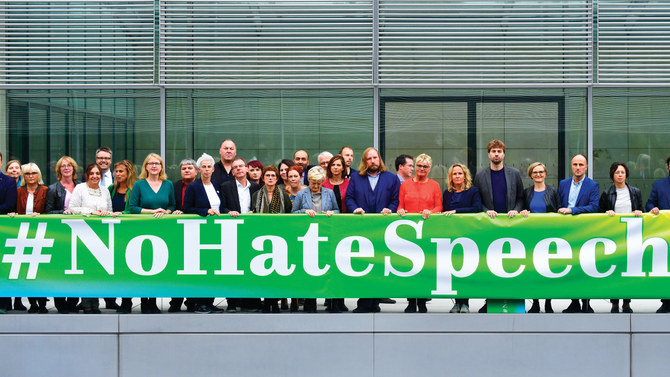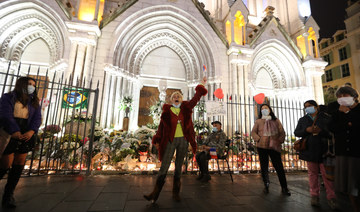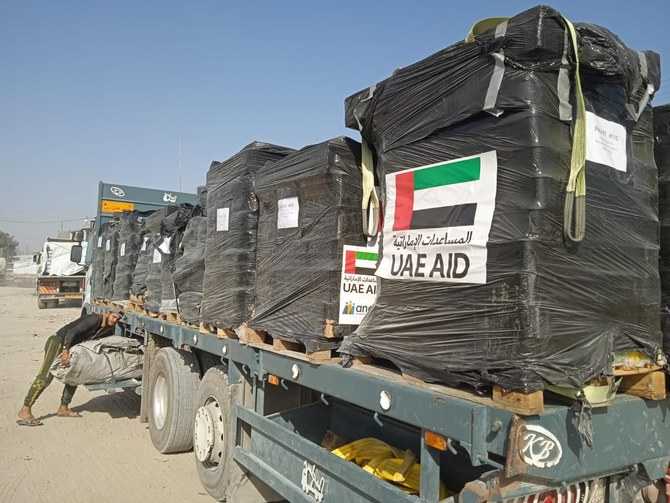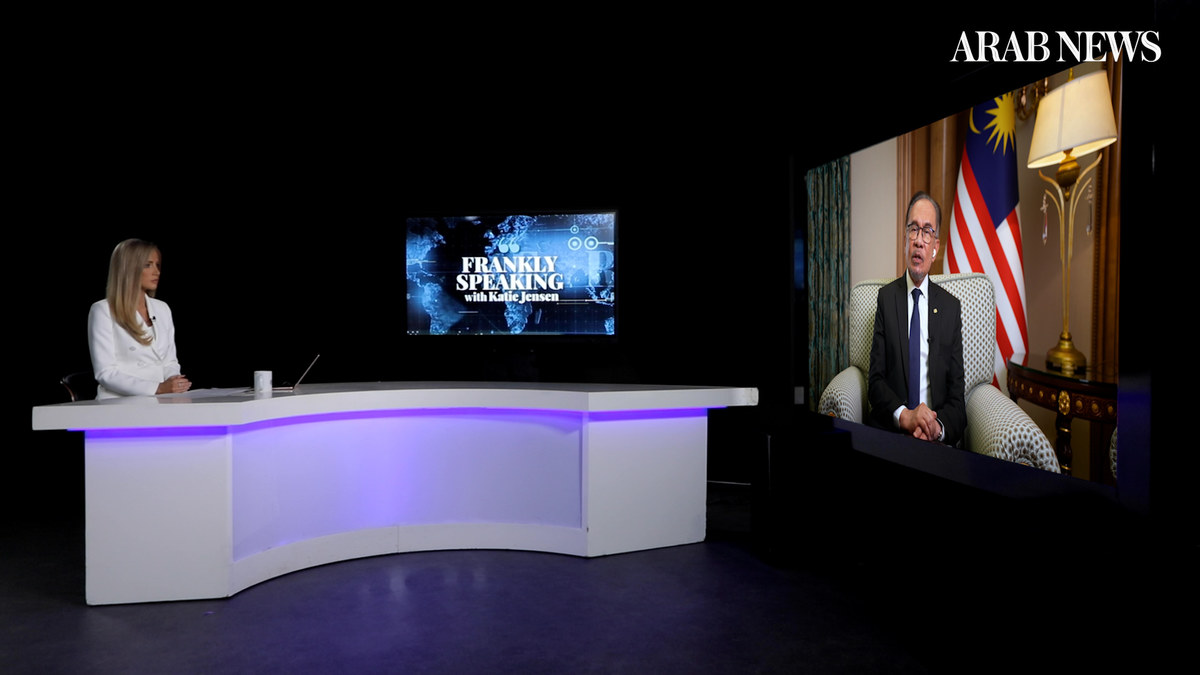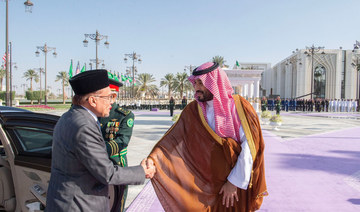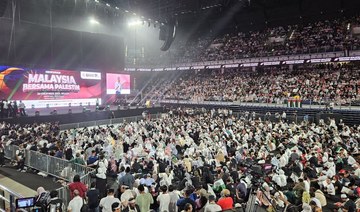DUBAI: Societies are diverse things by nature, composed of individuals with varying ideals and attributes who agree on an arrangement of coexistence around a shared set of values. It stands to reason there will be disagreements from time to time.
However, if societies lose this sense of fraternity, they can come apart at the seams. One relatively recent development — the advent of social media — appears to have amplified the disagreements, making societies far more polarized, resentful and confrontational.
Social media’s role in undermining this ideal was examined in detail at the International Human Fraternity Virtual Summit, held via video conference last week to coincide with the Zayed Award for Human Fraternity ceremony.
Participants in a panel discussion on the topic of “human fraternity” addressed the different types of risks that modern societies are exposed to, including the rise of extremist and populist groups and the role of social media in promoting hate speech. They also explored the strength of human bonds in an age of tribalism and increasing digital solitude.
Facebook, Twitter and others of their ilk have fundamentally changed how humans access information, share ideas and organize collectively. Misinformation travels faster and like-minded groups can assemble quickly, while ideas once considered fringe or extreme are granted almost unfettered airtime.
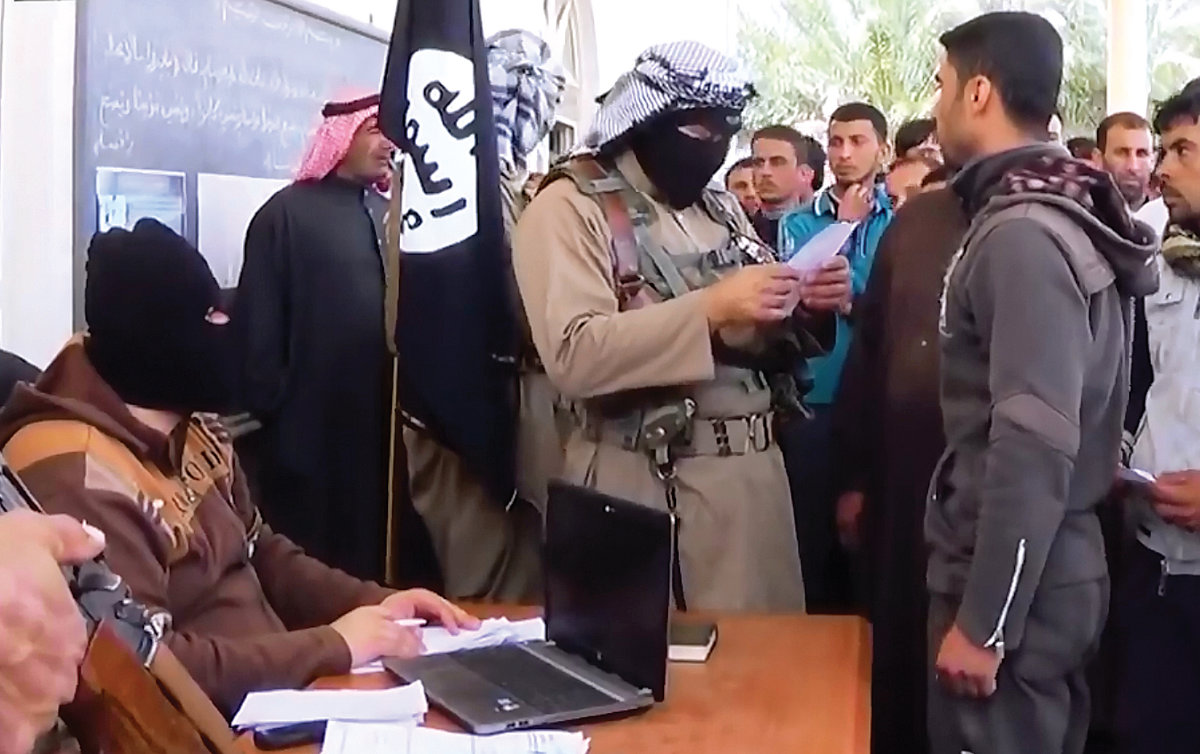
Less educated people are easily attracted to extreme groups that can, through social media, indoctrinate in them dangerous courses of action. (AFP file photo)
Technology has outpaced regulators, handing Silicon Valley tech giants immense power over freedom of expression.
“The idea of human fraternity is a great one,” Ahmed Aboul Gheit, secretary general of the Arab League, said in his remarks.
“But it will not fall on us out of the blue. We have to work for it and exert efforts to pacify our societies and to change the dominant culture.”
Indeed, today Islamists, Hindu ultranationalists, Buddhist chauvinists and the far right in the West are able to disseminate their hatred widely as trust in traditional news outlets ebbs.
The result is a world brimming with suspicion, conspiracy theories and xenophobia, with little room for the spirit of fraternity needed to combat humanity’s big shared challenges.
After the storming of the US Capitol on Jan. 6, the search for an antidote to social-media-fueled hate and anger appears more urgent than ever.
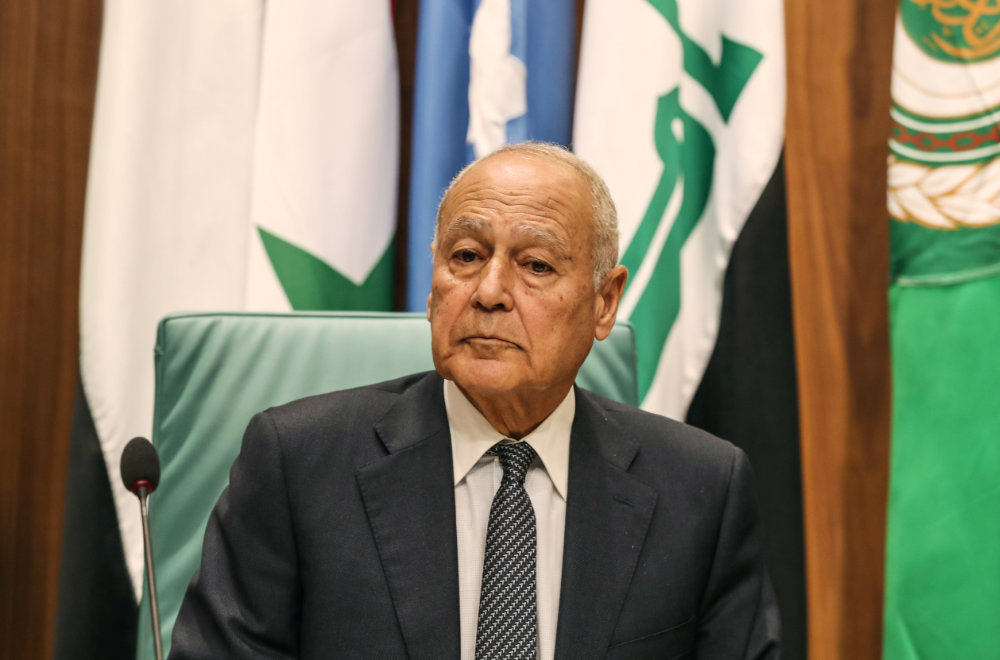
Arab League Secretary-General Ahmed Aboul Gheit. (AFP file photo)
“The Arab region is very wide, large and diversified, spanning 11 million square kilometers,” Aboul Gheit said.
“You have many ethnic groups, many religions, and you have a lot that is challenging and conflicting with each other. But the important thing, in my opinion, is the Islamists, which are a danger for the region because of the diversity of the Middle East.”
Governments are rightly combating political Islam through education rather than security measures alone, Aboul Gheit said. But social media and its use by radical elements remains a potent source of discord in the Middle East.
“This is mainly because education is not as it should be,” he said. “There are certain simple people who absorb certain ideas, and they are easily attracted to groups that will indoctrinate in them certain courses of action.”
FASTFACTS
- Feb. 4 has been designated as the International Day of Human Fraternity in honor of the signing of the Document on Human Fraternity by the Pope and the Grand Imam of Al-Azhar in Abu Dhabi on that day in 2019.
- UN Secretary-General Antonio Guterres and Moroccan-French activist Latifa ibn Ziaten received jointly the 2021 Zayed Award for Human Fraternity during a commemorative online event on Feb. 4.
Aboul Gheit wants to see social media platforms better regulated and extremist discourse addressed through education programs and the modernization of religious discourse.
“You can’t just leave it because of freedom of speech,” he said. “It often creates havoc on societies as we saw in Washington on Jan. 6. The US — the most economically and socially developed country — is suffering from conduct and actions that are shocking all of us.”
Fellow panelist Corinne Momal-Vanian, executive director of the Kofi Annan Foundation, defined human fraternity as an ethical imperative where all religions recognize the inherent dignity of each human being.
“It is recognized that we each have the same right,” she said. “But beyond this ethical dimension, human fraternity is also a political, pragmatic approach to things.”
She quoted Kofi Annan, the former UN secretary-general, who once said: “Unlike in the past when civilizations rose and fell in a zero-sum game, today, because the world is so interconnected, all nations will rise or fall together.”
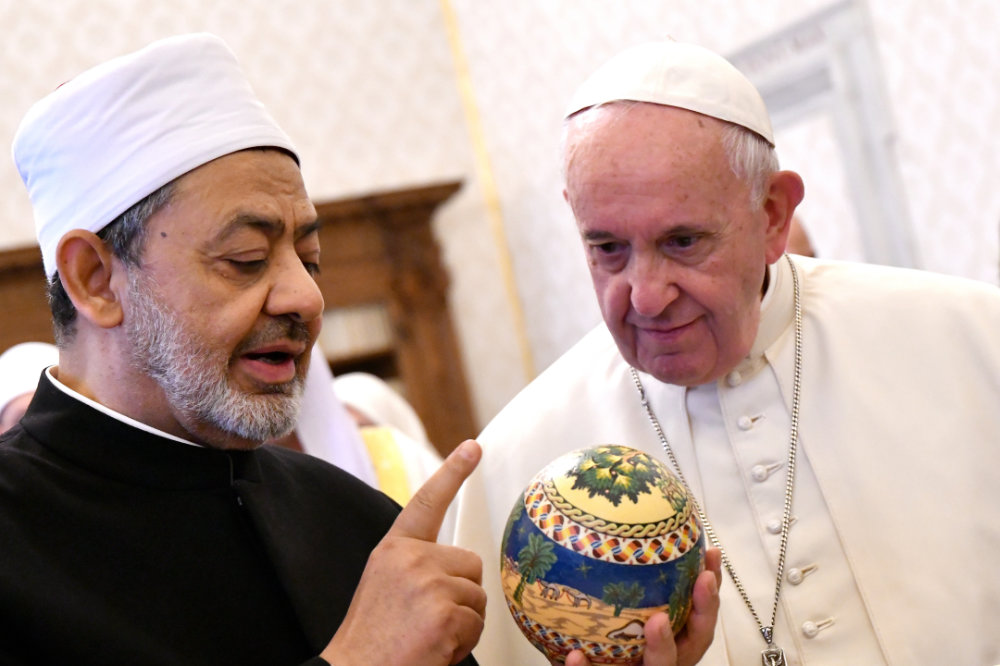
Pope Francis (R) receives a gift from Egypt's Azhar Grand Imam Sheikh Ahmed al-Tayeb during a private audience on November 15, 2019 at the Vatican. (AFP file photo)
This message is self-evident, Momal-Vanian said, and yet countries have “failed” to recognize it time and again, as demonstrated by the COVID-19 pandemic response.
“As much as the virus doesn’t distinguish among colors and religions, climate change, rising seas, and hurricanes won’t stop at the border, just as they won’t care who they are affecting,” she said.
According to Momal-Vanian, social media is a key driver of disunity, in large part because regulators have failed to keep pace with technological change.
“In the US, the issue is regulated by an act of 1996, which was before Facebook, Twitter or others existed,” she said.
“Legislation hasn’t followed and governments have struggled between the need to balance freedom of expression with the need to consider that these platforms are no longer just platforms hosting content, but they actually moderate content themselves.”

Less educated people are easily attracted to extreme groups that can, through social media, indoctrinate in them dangerous courses of action. (AFP)
One recent example was Twitter’s decision to suspend the account of former US president Donald Trump in the wake of the Capitol incident. Even many anti-Trump voices in Europe have questioned whether that decision was truly Twitter’s to make.
“The good news is that the European Union is working on a Digital Services Act, which will answer a lot of these questions,” Momal-Vanian said. “It will serve as a model to many other regulators.”
The challenge now is to define the responsibilities of these platforms over the content they share. “They can no longer hide behind the fact that they are just hosting it,” she said, adding that the Kofi Annan Foundation is working closely with companies including Facebook to establish appropriate regulations.
“You can have the best algorithm and yet you will always have hatred spreading like wildfire on these platforms,” Momal-Vanian said. “This will be a very important issue and COVID-19 has accelerated our awareness that we need to respond to these very fast.”
Maria Fernanda Espinosa, a former president of the UN General Assembly, struck a relatively more optimistic note, saying that although racism, xenophobia and violent extremism appear to be on the rise, such trends can be reversed collectively in societies based on solidarity and cooperation.
“That was perhaps the clearest lesson from the COVID-19 pandemic,” she said. “We are interdependent, we need each other, and no one is safe until everybody’s safe. We are here to reflect on the need to remember our humanity and the need for a peaceful coexistence.”
Every zoonotic disease, from Ebola to influenza, is a message to humans from nature saying “we cannot overstep its boundaries, that we need to reconcile with nature, and that our development should be sustainable and greener,” she said.
So, business as usual is not an option, according to her. “We need to reinvent, rebuild societies that are more inclusive, based on affirmative action to fight poverty, and all forms of inequality, including gender, economic, ethnic and age,” Espinosa said in conclusion.
“We now have the opportunity to build back better, to build back more equal, greener and to build back more peaceful societies.”
___________
Twitter: @CalineMalek





